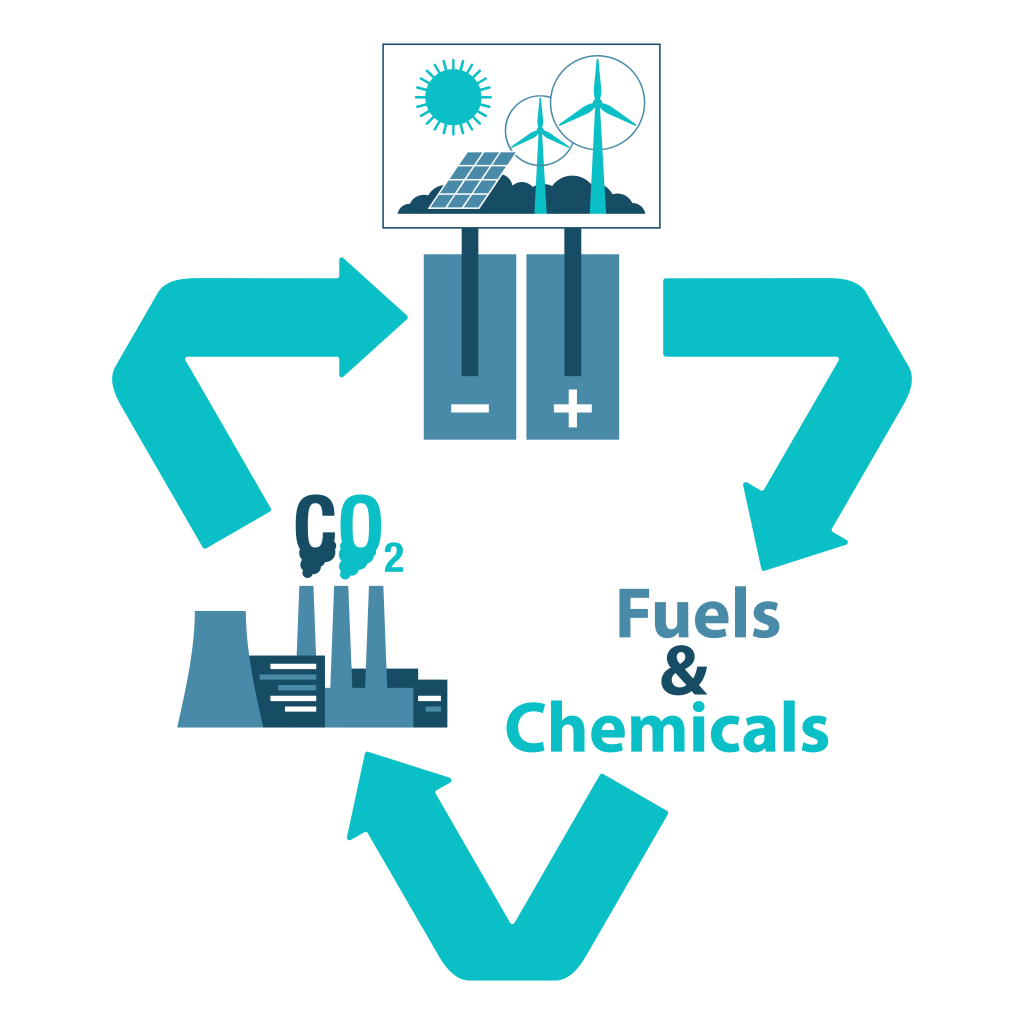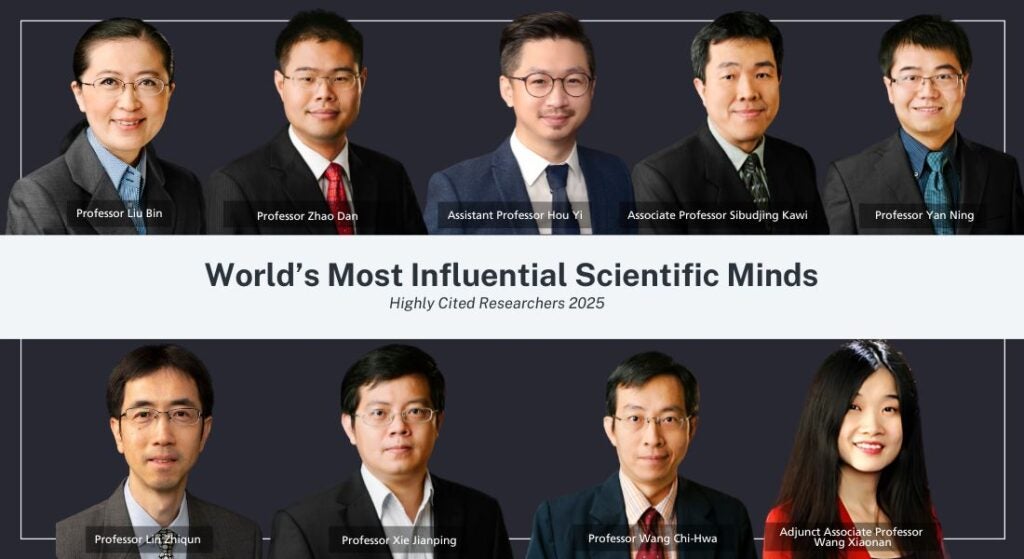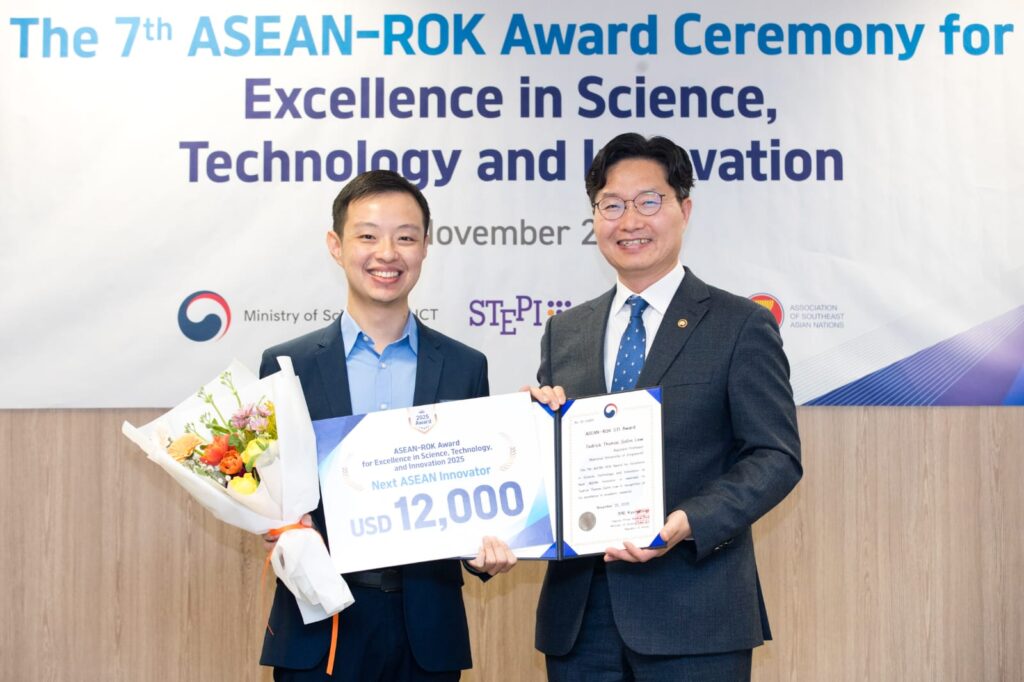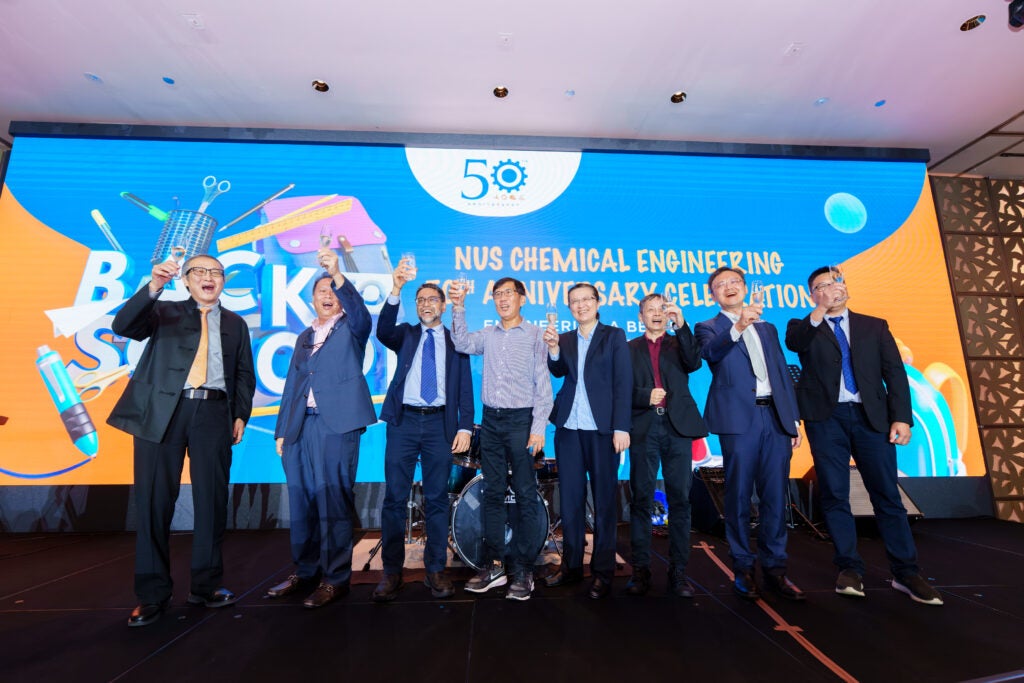Seven ChBE researchers will lead new projects on lowering carbon emission
8 November 2021

On Oct. 25, 2021, the Singapore Government announced funding of 12 research projects to develop new technologies for reducing carbon emission (total funding size: 55 million SGD [~41 million USD]). Seven of these projects will be led by researchers from the Department of Chemical and Biomolecular Engineering, National University of Singapore (NUS ChBE).
Climate change is one of the biggest challenges our society is facing. One of the major contributors to the climate change is the increasing concentration of carbon dioxide (CO2) in the atmosphere. Large amount of CO2 is currently being emitted, because most of the energy needed by our society is supplied by combustion of carbon-containing fossil fuels, including coal, gasoline, diesel and methane (the most frequently used natural gas). All of these fuel molecules are carriers of chemical energy, which can be released through combustion to drive mechanical machines and to generate electricity.
To cut down the global CO2 emission, a conceptually straightforward solution is to capture the CO2 from the flue gas of the power plants and other CO2-emitting processes. Technically, such CO2 capture is still challenging under the cost constraint. The volumetric percentage of CO2 is at most 14% in the flue gas of power plants, because air is used to provide oxygen and the majority of air is nitrogen. Assistant Professor Zhang Sui will develop hollow-fiber membranes to reduce the cost of carbon capture, while Associate Professor Zhao Dan plans to tackle the same challenge using adsorbents including metal-organic frameworks (MOFs) and covalent organic frameworks (COFs).
The captured CO2 could be stored in underground reservoir or activated and transformed into fuels and other useful molecules using renewable energy. Associate Professor Praveen Linga will lead a project to stably store CO2 as hydrate, which has high volumetric CO2 density and suitable for long-term storage in deep-ocean sediments. Professor Zeng Hua Chun is going to develop nanostructured catalysts to transform CO2 into higher alcohols and other value-added chemicals with hydrogen gas produced by renewable energy.
To date, existing methods to transport hydrogen are costly, because hydrogen is a gas under atmospheric pressure and thus has low energy per volume it occupies. It is challenging to liquify hydrogen through compression because of its unique molecular structure. Hydrogen could be condensed with nitrogen to form ammonia, which is easy to store. Associate Professor Yan Ning will develop new catalysts to split ammonia into hydrogen and nitrogen, so that ammonia can be used as a carrier to achieve cost-effective hydrogen transportation.
Associate Professor Sibudjing Kawi plans to develop a new technology to efficiently split methane into hydrogen and carbon. Since methane is currently being traded globally and this new hydrogen-producing process does not directly produce CO2, this new process might allow the use of the conventional energy source without incurring the carbon tax. In addition, the produced carbon could be further transformed into more valuable products.
There are many opportunities to integrate the technologies developed by the aforementioned projects. For example, the majority of the energy Singapore uses is generated by the natural gas-based power plants; theoretically CO2 could be captured from the flue gas of these power plants and subsequently transformed into alcohol-based fuels for the city using hydrogen generated from splitting the natural gas (methane). To guide such integration and deployment, Professor Iftekhar Karimi will lead a project to develop computational tools for assessing the individual technologies and integrated processes in terms of costs, benefits, risks, uncertainties and timeframes.
Collectively, these projects will contribute to the regional and global efforts in combating the climate change. More information of this story can be found through the following links:
NUS News: https://news.nus.edu.sg/eight-nus-projects-to-pioneer-low-carbon-energy-technologies/
EMA: https://www.ema.gov.sg/media_release.aspx?news_sid=20211024M01pxaeHuLYZ
More information on the involved NUS ChBE researchers can be found on their websites:
Assistant Professor Zhang Sui: https://cde.nus.edu.sg/chbe/staff/chezhangsui/
Associate Professor Zhao Dan: https://cde.nus.edu.sg/chbe/staff/chezhao/
Associate Professor Praveen Linga: https://cde.nus.edu.sg/chbe/staff/chepl/
Professor Zeng Hua Chun: https://cde.nus.edu.sg/chbe/staff/chezhc/
Associate Professor Yan Ning: https://cde.nus.edu.sg/chbe/staff/cheyann/
Associate Professor Sibudjing Kawi: https://cde.nus.edu.sg/chbe/staff/chekawis/
Professor Iftekhar Karimi: https://cde.nus.edu.sg/chbe/staff/cheiak/





